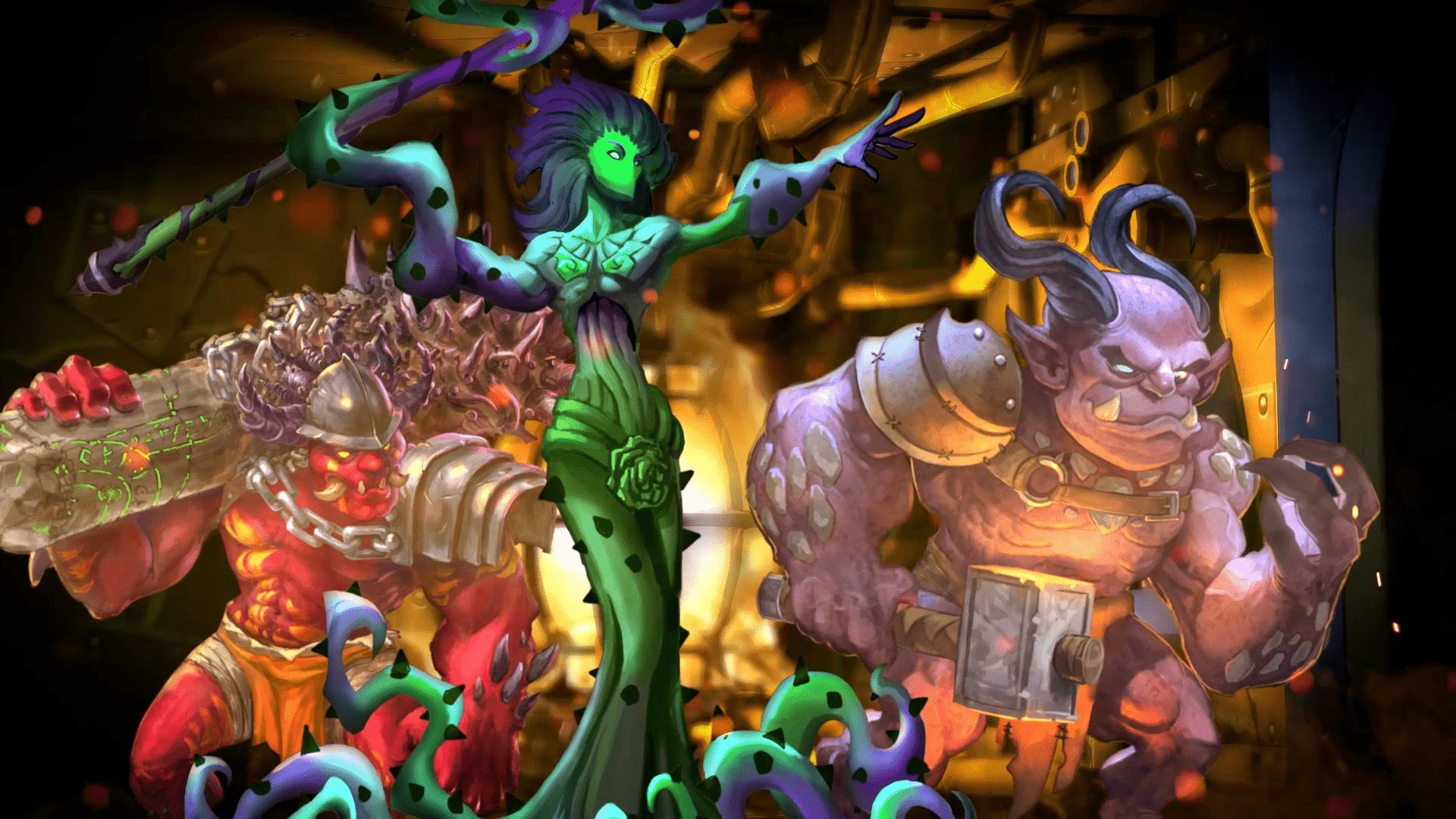
What is it? A roguelite deckbuilder on rails.
Expect to pay: $25/£19.49
Developer: Shiny Shoe
Publisher: Good Shepherd
Reviewed on: Windows 10, Intel Core i7, 16GB RAM, Nvidia GTX 1060
Multiplayer? Eight-player online sharing the same seed
Link: themonstertrain.com
Hell is empty and all the devils are here, and by here I mean on this train, teaming up with monsters to fight angels across the frozen wasteland that used to be their home, until they reach Hell’s heart and relight it with the last Pyre-flame. Surprisingly, the game beneath that wild idea is a deckbuilder so similar to Slay the Spire that if I hadn’t seen the creators of both talking chummily on a livestream I’d have been a bit suspicious.
Where Slay the Spire had relics that changed the nature of a run, Monster Train has artifacts that sometimes have basically the same abilities (the infamous Snecko Eye, which randomised spell costs, returns as “Volatile Gauge”). Slay the Spire had unlockable difficulty levels called ascensions, Monster Train calls them covenants. I found myself not minding the lack of originality, though. It feels like playing a sequel that builds on its predecessor’s ideas.
There are plenty of ways Monster Train is different. Instead of choosing a hero with their own deck of cards, you pick two monster clans, combining their decks like colours in Magic: The Gathering. (Some are strange, like the waxy undead Melting Remnant, while others are a bit mundane like the plant-themed Awoken). Each battle takes place over four levels of your train—three platforms where you summon monsters and a Pyre at the top that has to be protected. Packs of angels enter at the ground floor and any you don’t kill march up a level.
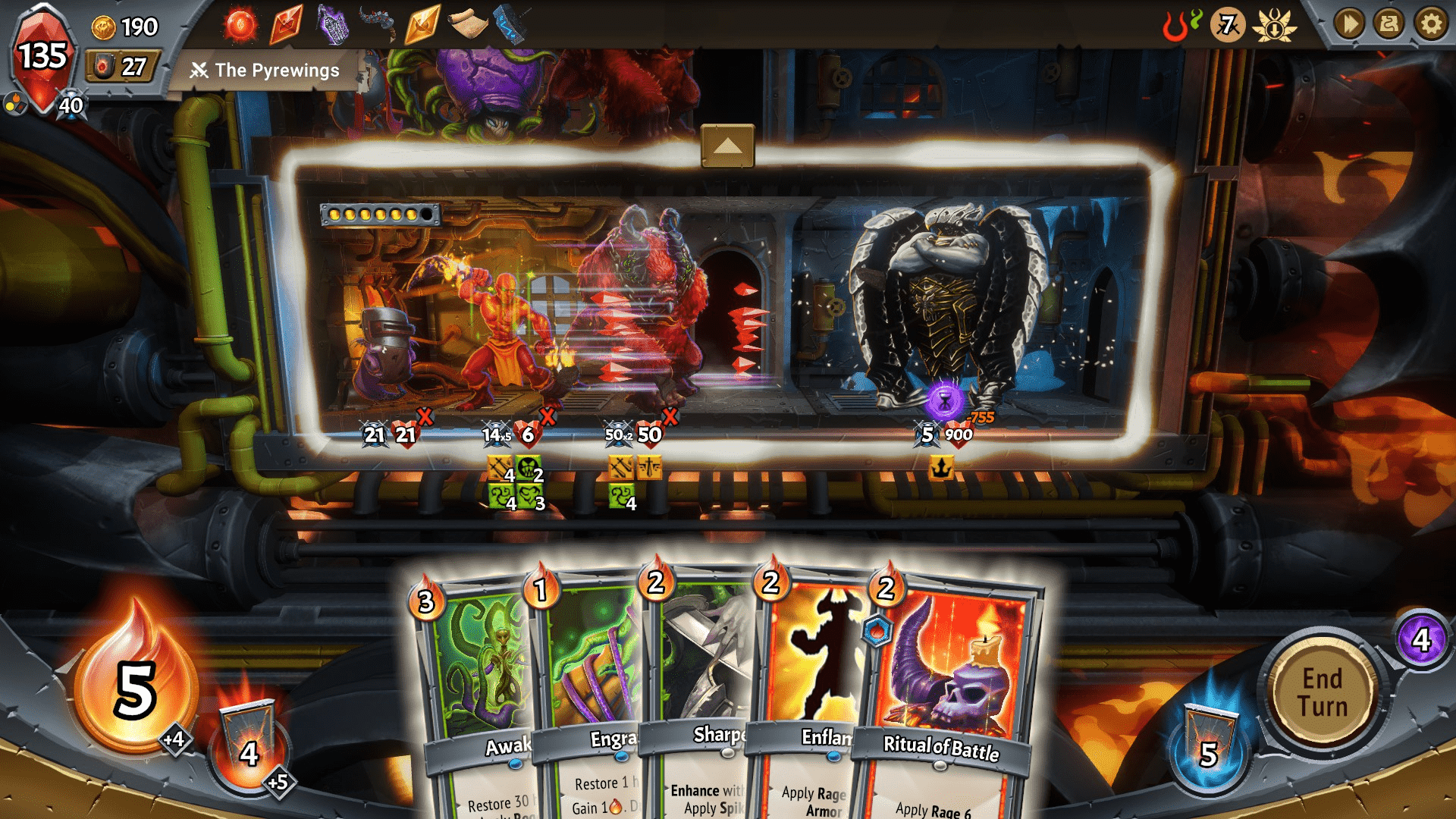
Combo wombo
Like every deckbuilder, the point of Monster Train is to discover combos. My one successful run with the Hellhorned clan relied on a cheap imp who gave 15 points of armor to whatever it was summoned behind, which I upgraded with the endless trait so it could be summoned over and over, then set off with a card that let me sacrifice an imp for a mana point. I repeatedly summoned and detonated that imp behind a champion I’d upgraded with a slay ability—every time he got a kill his attack power increased. By the end of each round he’d have an obscene amount of both armor and attack, dealing hundreds of points of damage each turn.
When you find a combo like that in a deckbuilder you feel like you’re cheating, like you’ve sneakily broken the game. It’s a fun feeling. In Monster Train you quickly reach bosses with hundreds of hit points and powerful debuffs, then realise you haven’t cheated the game at all. You’ve done the bare minimum to play competently.
Between battles the train tracks split, each path taking in several points of interest. One path might let you upgrade spells, heal your pyre, and purge two cards from your deck. The other might let you upgrade units, score free money, and duplicate a card. Duplicated cards keep whatever upgrades you’ve put on them, which is one path to those obscene combos.
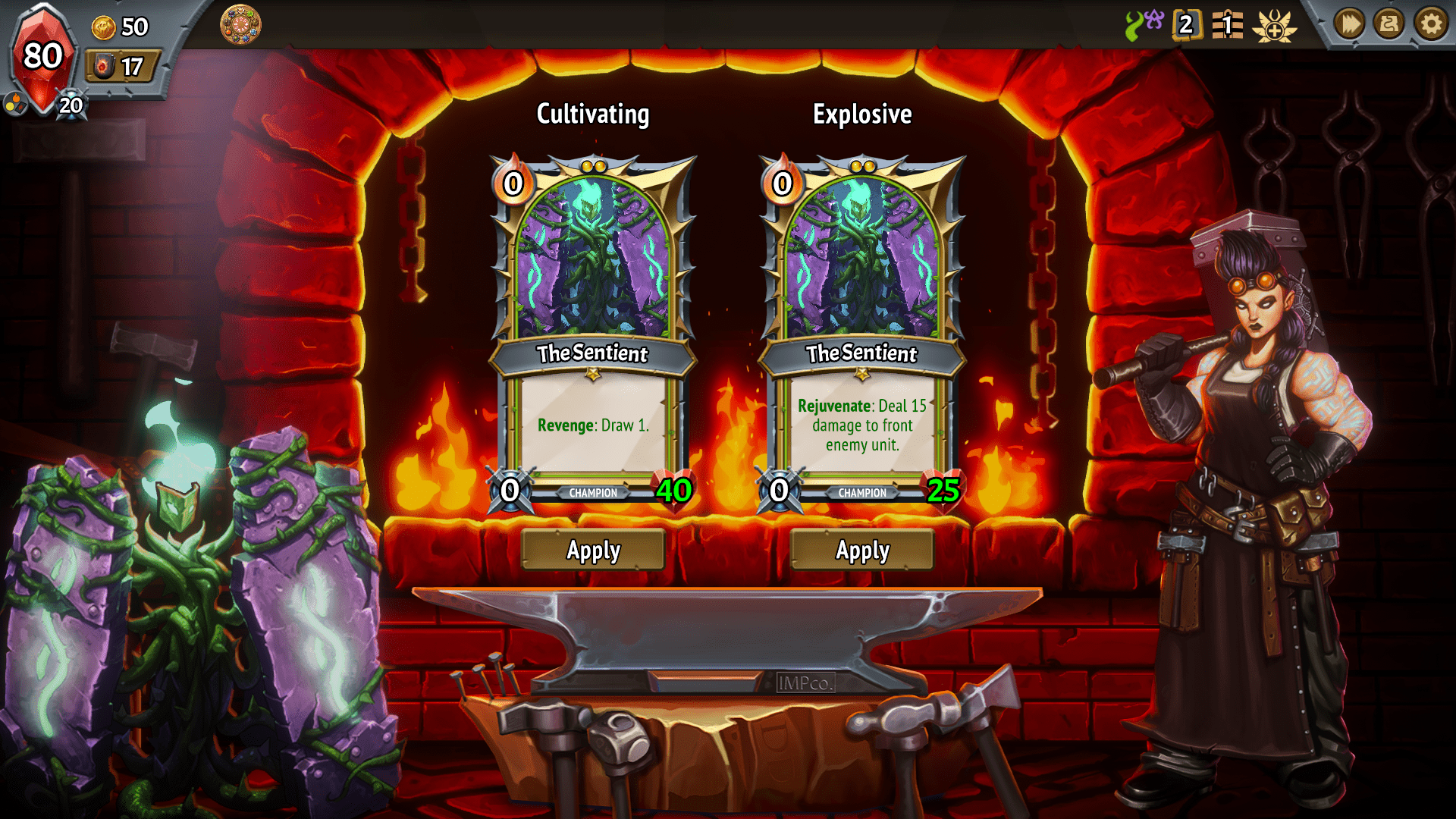
Even more than other deckbuilders, Monster Train encourages lean decks purged of the chaff you start with, so your best combos go off every turn. The way to play isn’t to discover a combo halfway through your run and adapt to it, instead you have to plan one from the beginning and then build towards it with the right upgrades. You even get told in advance which variation of the final boss you’ll be facing so you can modify your plans.
That can make the randomness even more frustrating. There are three upgrade paths for each clan’s champion (a zero-cost hero card who forms their centrepiece), but you’re only offered two of those paths per run. Any run where the Hellhorned champion doesn’t get offered the slay ability from the off is one I should abandon, because I’ve never made either of the others work.
Circling back to Slay the Spire—you knew I would—its rhythm of stumbling across powerful combos by chance feels more elating when it works, and has more tension when it comes down to the line. Monster Train is a lower dosage of the same hit, though it scratched the same itch for several enjoyable hours and the first couple of covenants, and is an easy recommendation for Slay the Spire devotees.
Read our review policy
A deckbuilder that will have you doing hit point calculations and liking it.

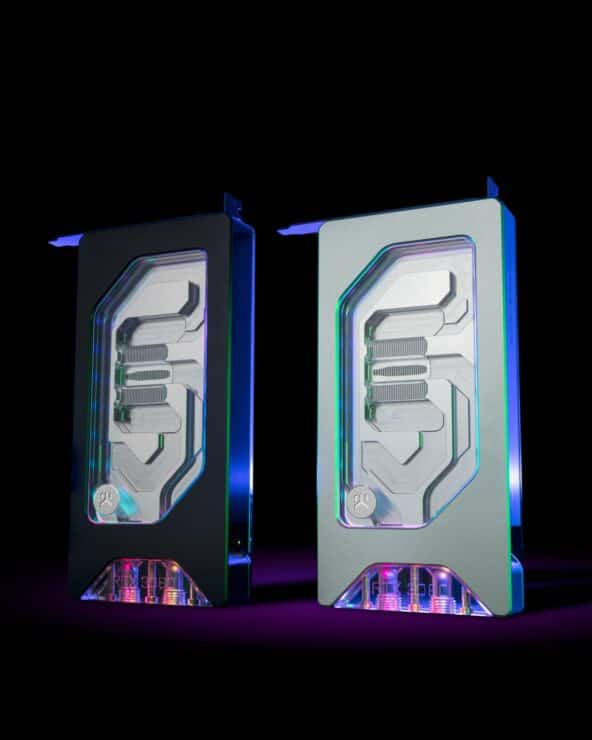
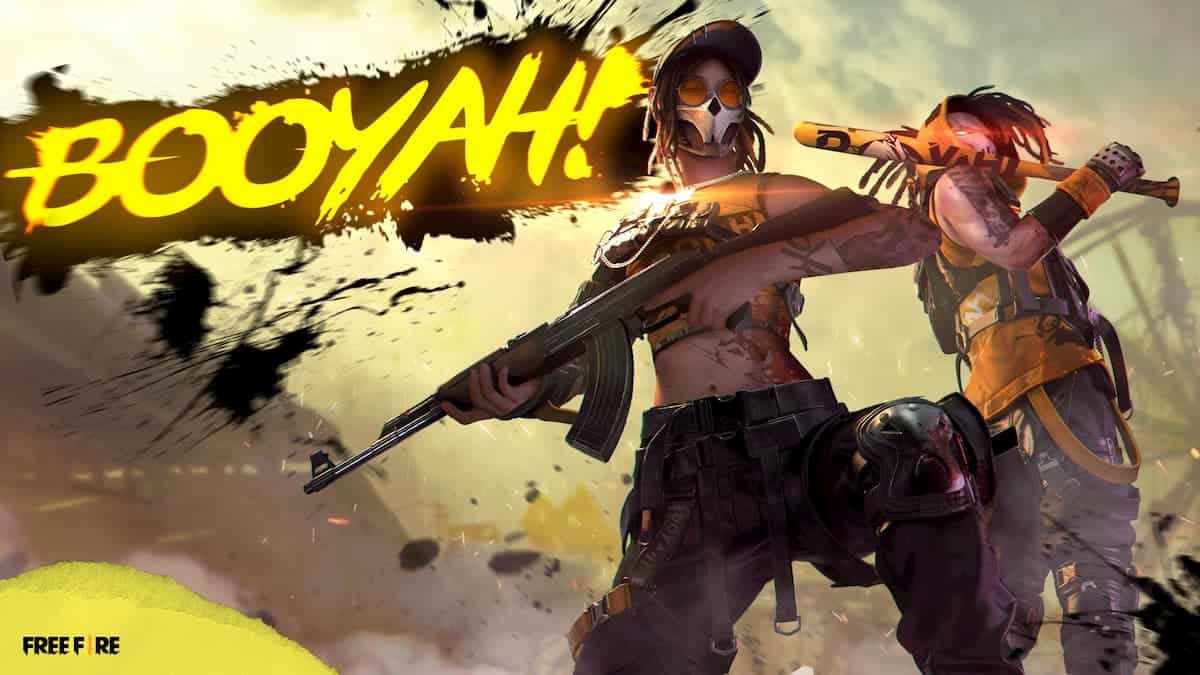


More Stories
Firefighting Simulator – The Squad review — Through the fire and the shame
Maid of Sker review — Death in the slow lane
PHOGS! review – It’s a dog-help-dog world out there